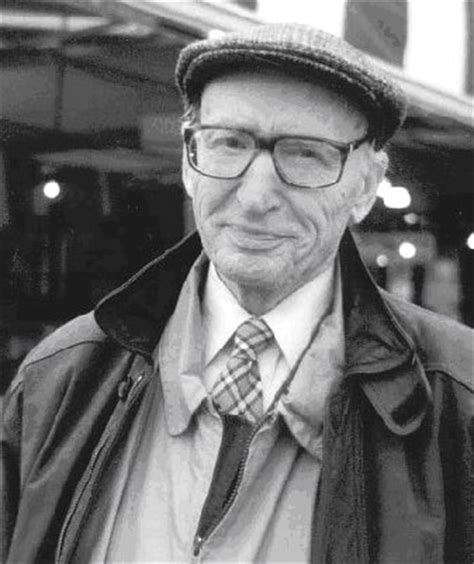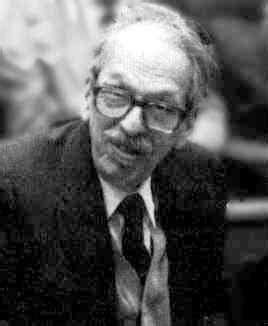A Quote by T. S. Eliot
It seems just possible that a poem might happen to a very young man: but a poem is not poetry -That is a life.
Related Quotes
Lucky accidents seldom happen to writers who don't work. You will find that you may rewrite and rewrite a poem and it never seems quite right. Then a much better poem may come rather fast and you wonder why you bothered with all that work on the earlier poem. Actually, the hard work you do on one poem is put in on all poems. The hard work on the first poem is responsible for the sudden ease of the second. If you just sit around waiting for the easy ones, nothing will come. Get to work.
The subject of the poem usually dictates the rhythm or the rhyme and its form. Sometimes, when you finish the poem and you think the poem is finished, the poem says, "You're not finished with me yet," and you have to go back and revise, and you may have another poem altogether. It has its own life to live.
One day while studying a Yeats poem I decided to write poetry the rest of my life. I recognized that a single short poem has room for history, music, psychology, religious thought, mood, occult speculation, character, and events of one's own life. I still feel surprised that such various substances can find shelter and nourishment in a poem. A poem in fact may be a sort of nourishing liquid, such as one uses to keep an amoeba alive. If prepared right, a poem can keep an image or a thought or insights on history or the psyche alive for years, as well as our desires and airy impulses.
In a poem, the words happen; they just come. I let them. Otherwise, I wouldn't write. To interfere with what is happening is to distort the poem. Just a very small degree of intelligence and supervision is necessary. Very tactful. Any revision later that violates the text as it came, that begins rewriting the words, is fake.
That's one of those questions that would just love to have a pat answer. You know, poetry's job is to make us feel good. Poetry exists to allow us to express our innermost feelings. There isn't one role for poetry in society. There are many roles for poetry. I wrote a poem to seduce my wife. I wrote a poem when I asked her to marry me. Poetry got me laid. Poetry got me married.
I would read the Shel Silverstein poems, Dr. Seuss, and I noticed early on that poetry was something that just stuck in my head and I was replaying those rhymes and try to think of my own. In English, the only thing I wanted to do was poetry and all the other kids were like, "Oh, man. We have to write poems again?" and I would have a three-page long poem. I won a national poetry contest when I was in fourth grade for a poem called "Monster In My Closet.
I keep feeling that there isn't one poem being written by any one of us - or a book or anything like that. The whole life of us writers, the whole product I guess I mean, is the one long poem - a community effort if you will. It's all the same poem. It doesn't belong to any one writer - it's God's poem perhaps. Or God's people's poem.
I just think that the world of workshops - I've written a poem that is a parody of workshop talk, I've written a poem that is a kind of parody of a garrulous poet at a poetry reading who spends an inordinate amount of time explaining the poem before reading it, I've written a number of satirical poems about other poets.






































